The autochrome is an early form of colour photography.The vivid colours the photographs have a painterly quality, attracting photographers to create still life pictures? The autochrome process used a microscopic mosaic of coloured potato starch grains dyed green, blue and red (about four million per square inch) on a glass plate.
“When the photograph is taken, light passes through these colour filters to the photographic emulsion,” says the UK’s Science & Media Museum. “The plate is processed to produce a positive transparency. Light, passing through the coloured starch grains, combines to recreate a full colour image of the original subject.”
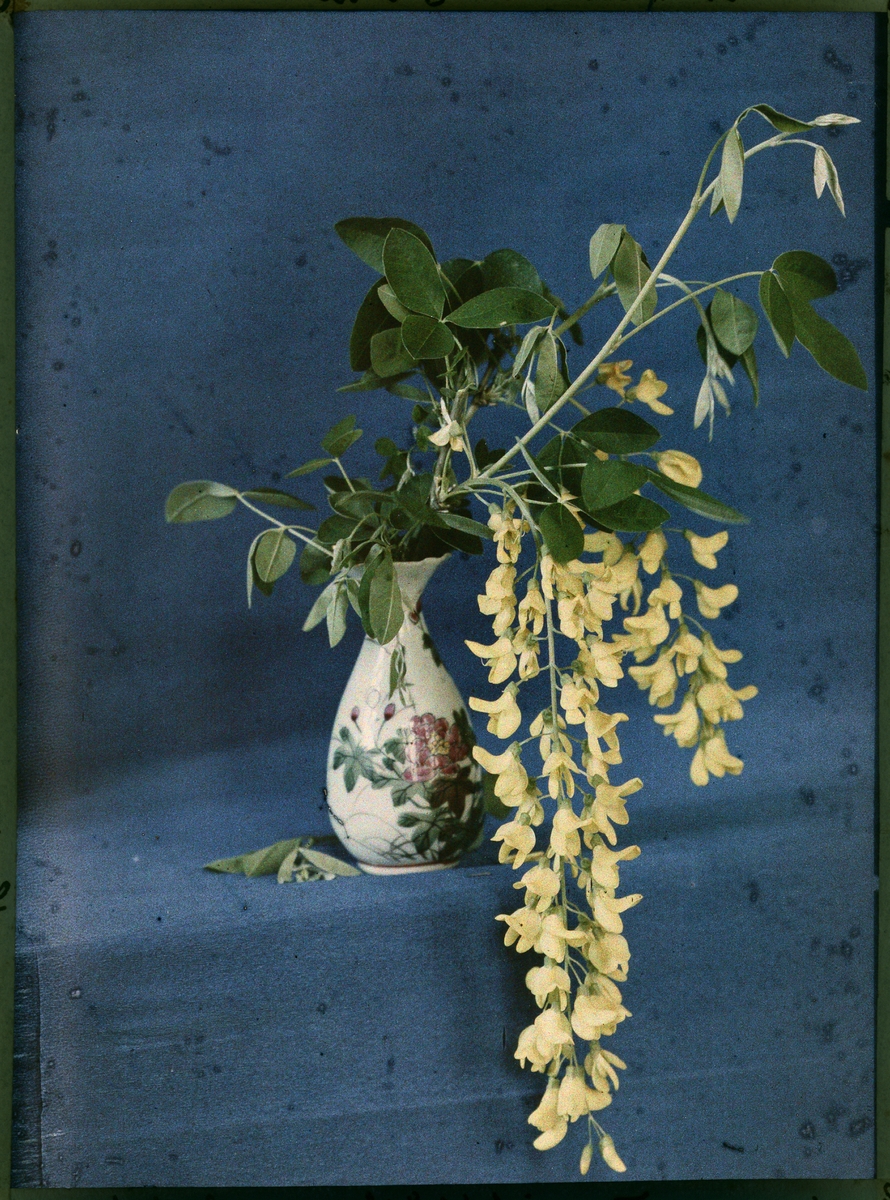
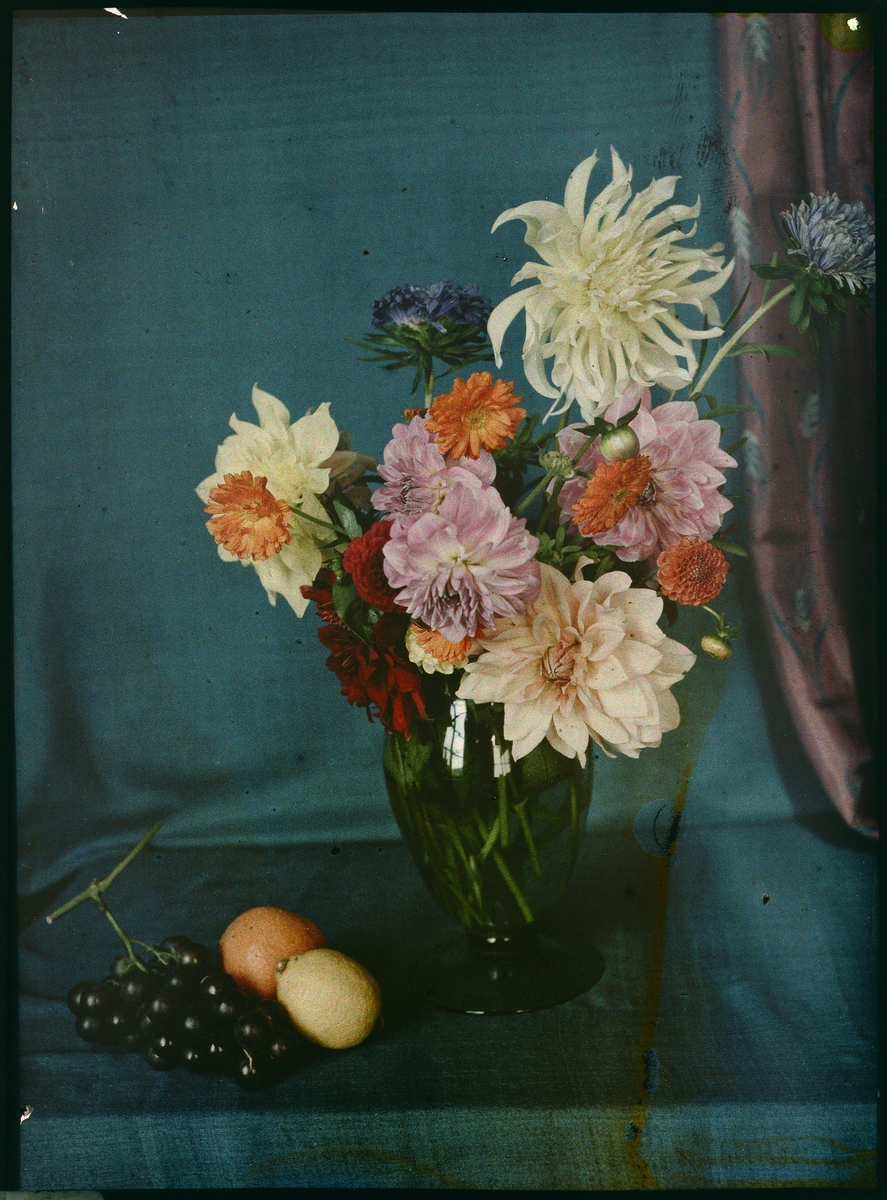
Bäckström, Helmer Swedish
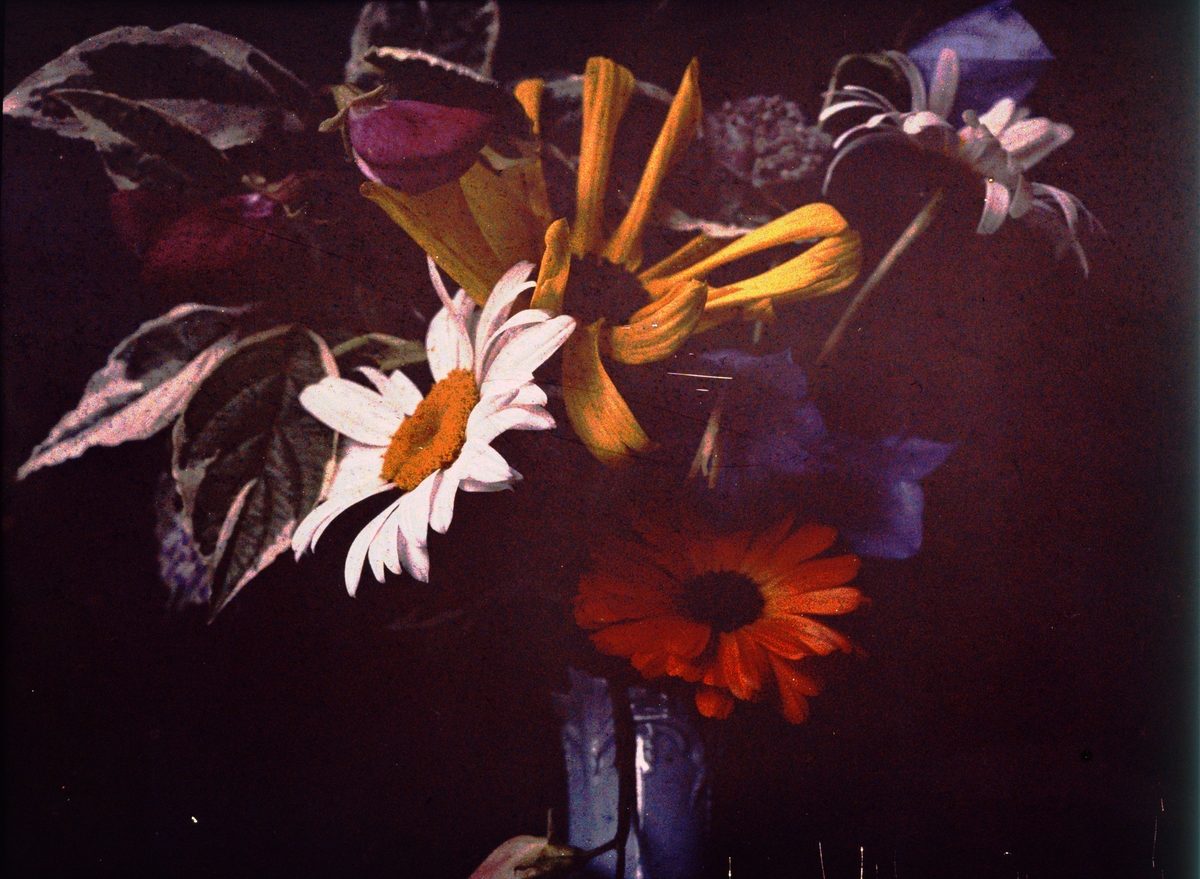
Jäderström, John
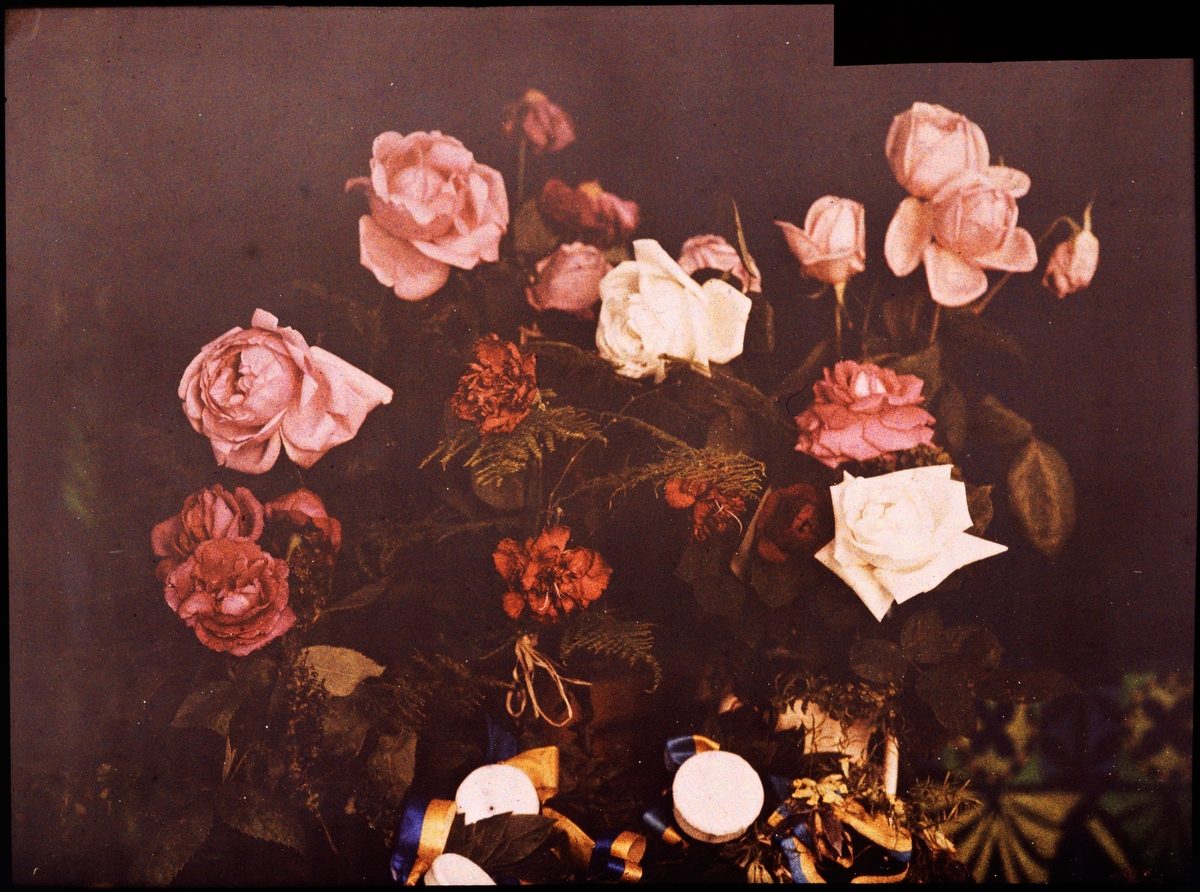
Jäderström, John
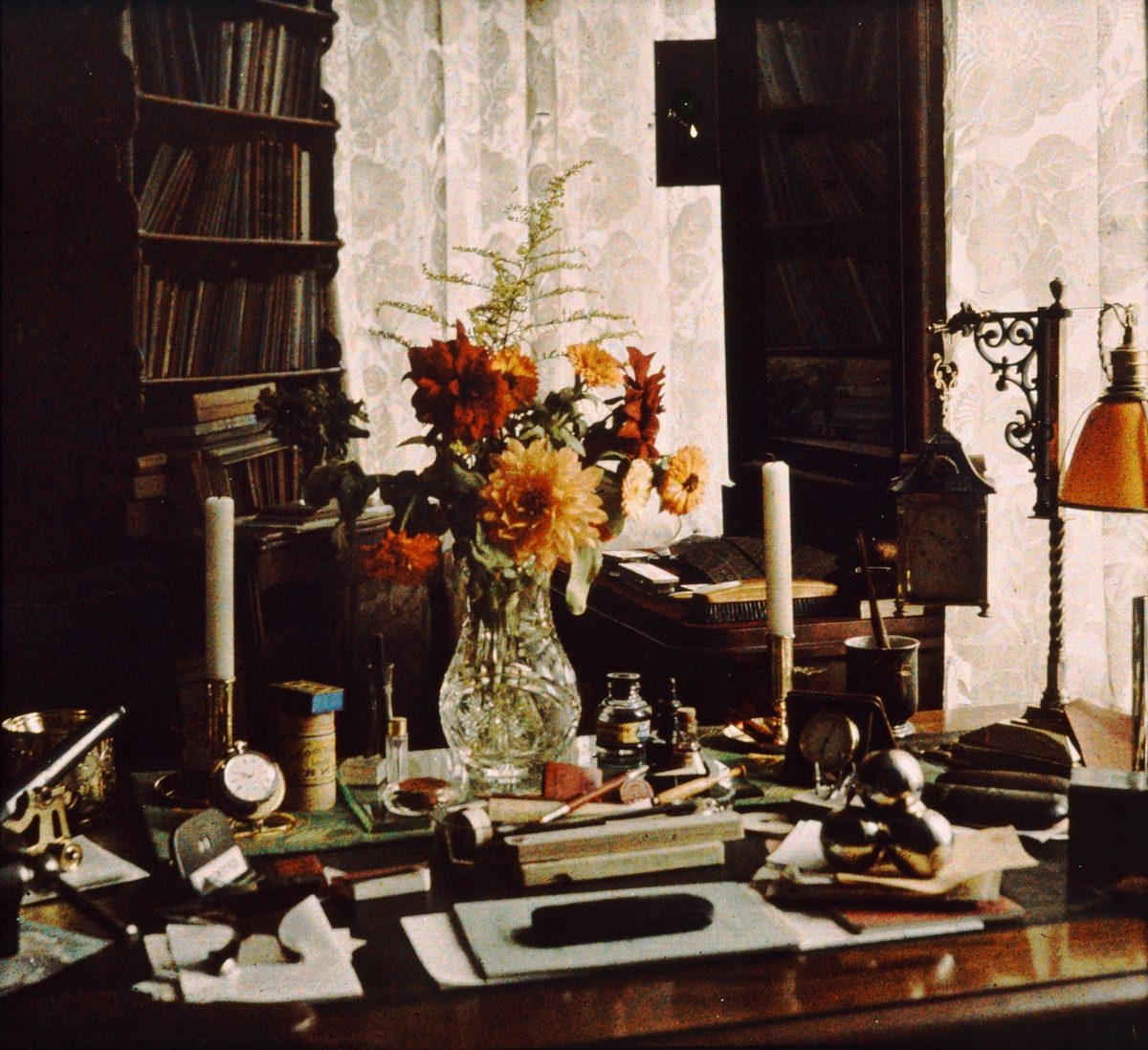
Balke, J.O.
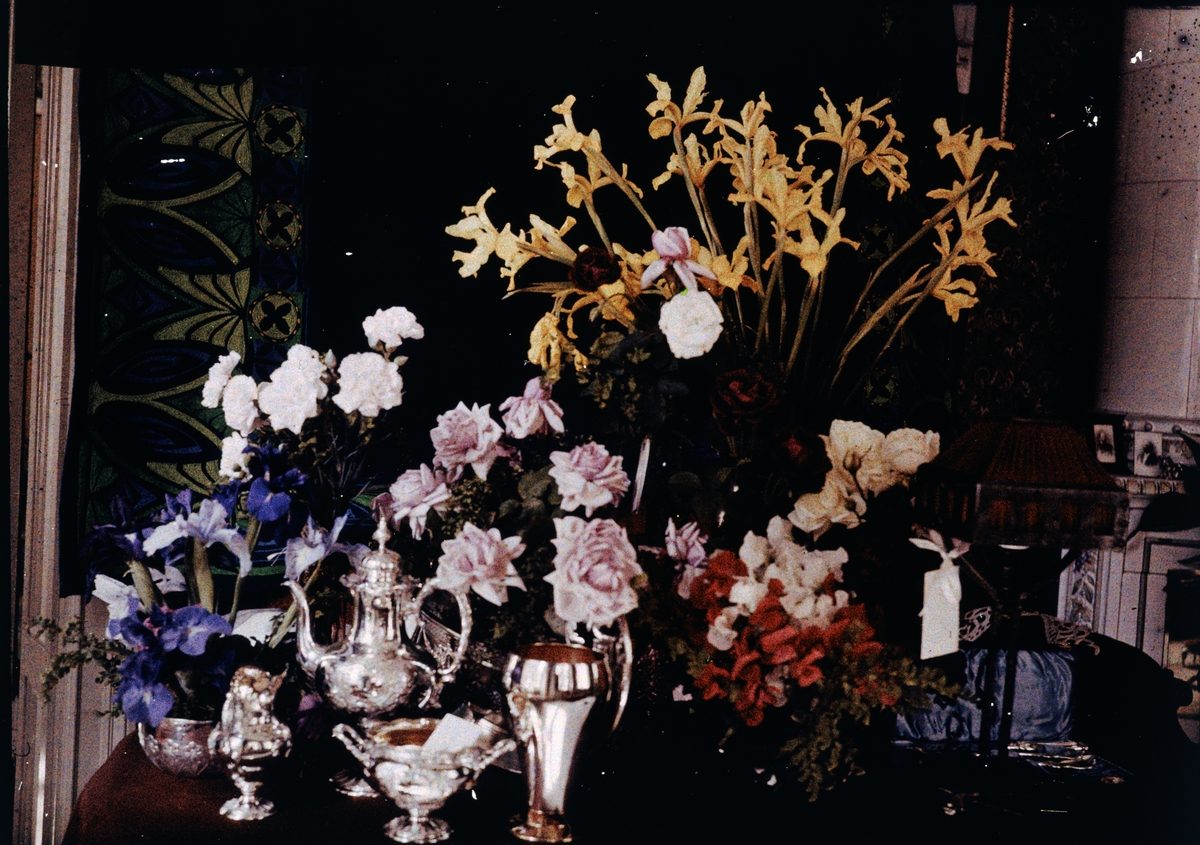
Jäderström, John
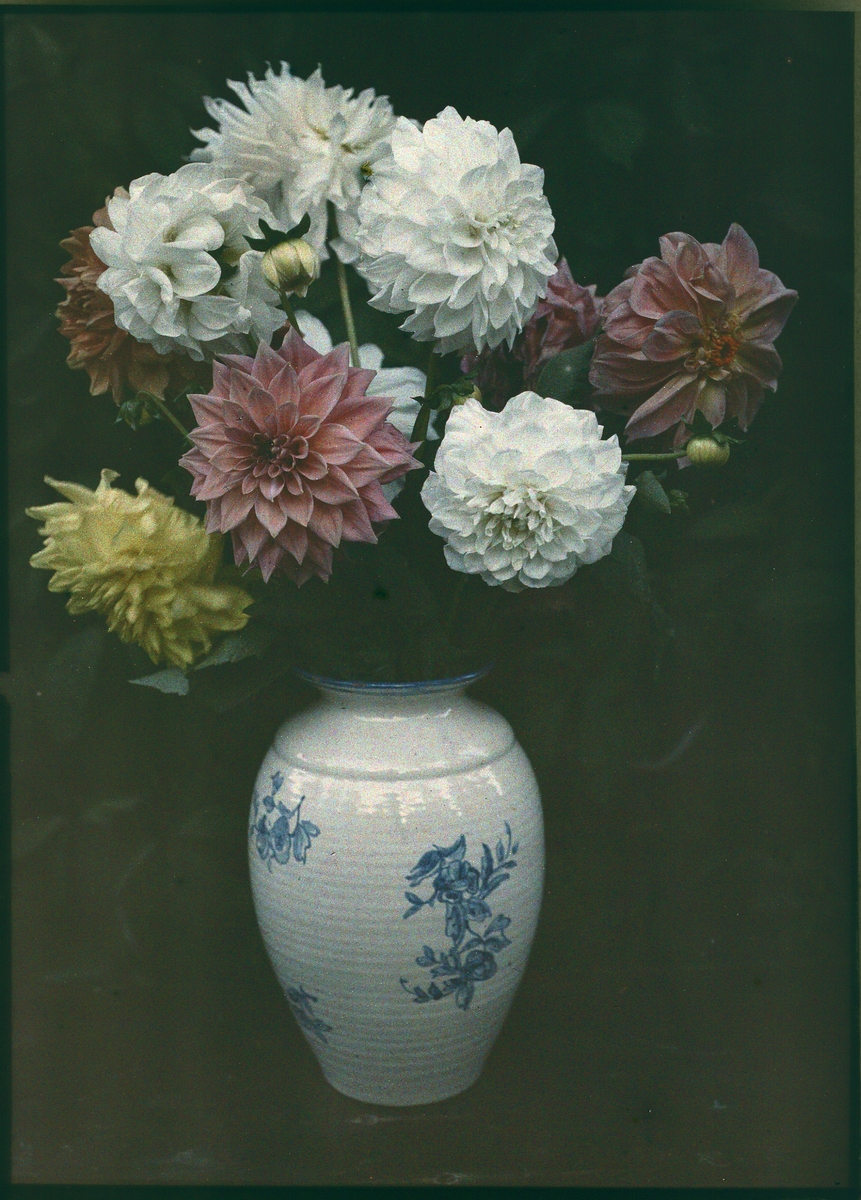
Bäckström, Helmer
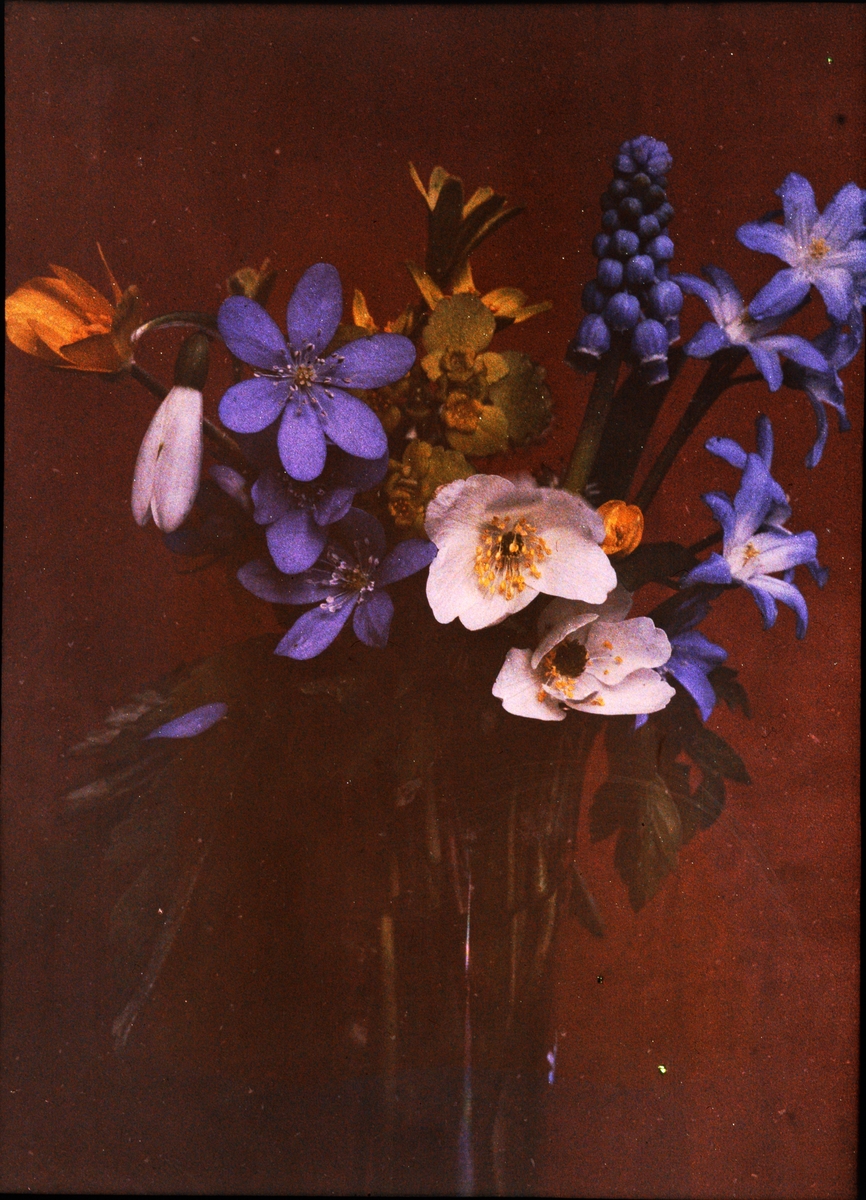
Jäderström, John
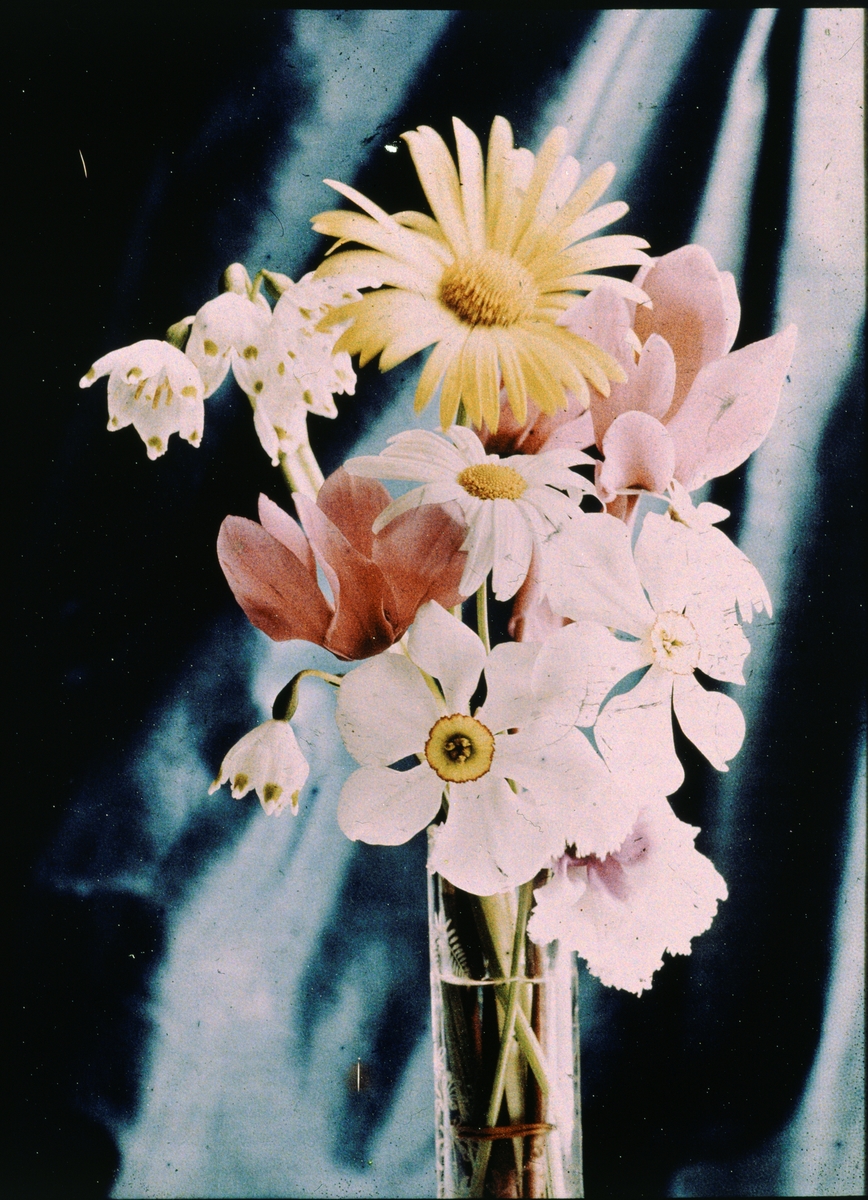
Jäderström, John
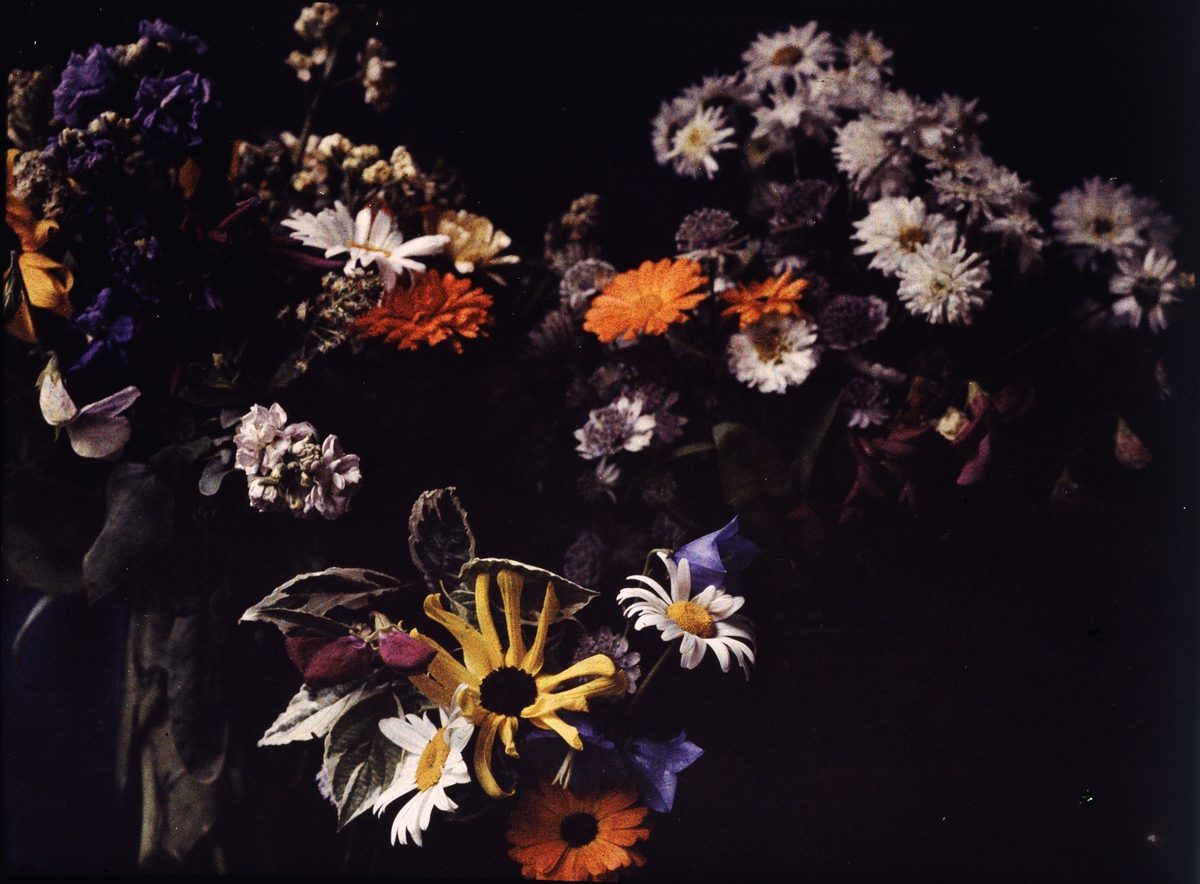
Jäderström, John
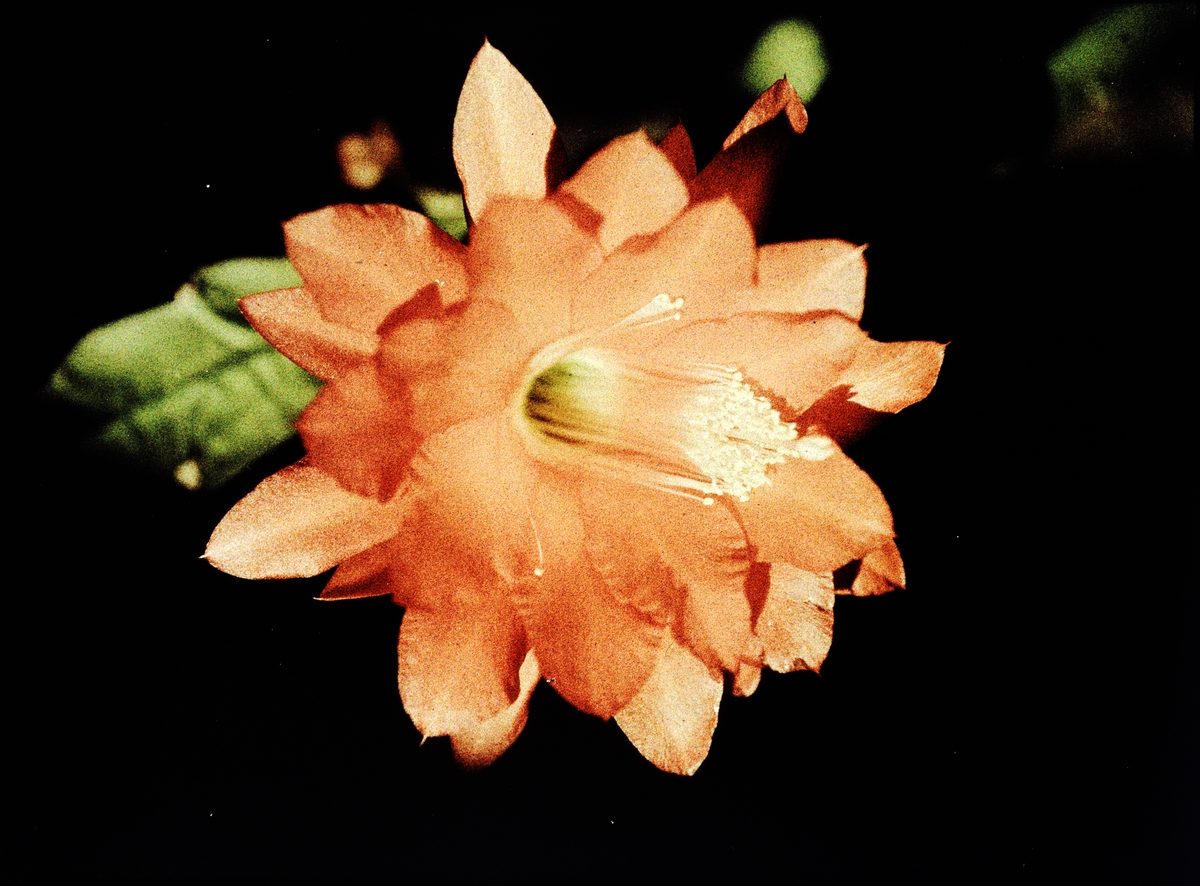
Ekström, Tor
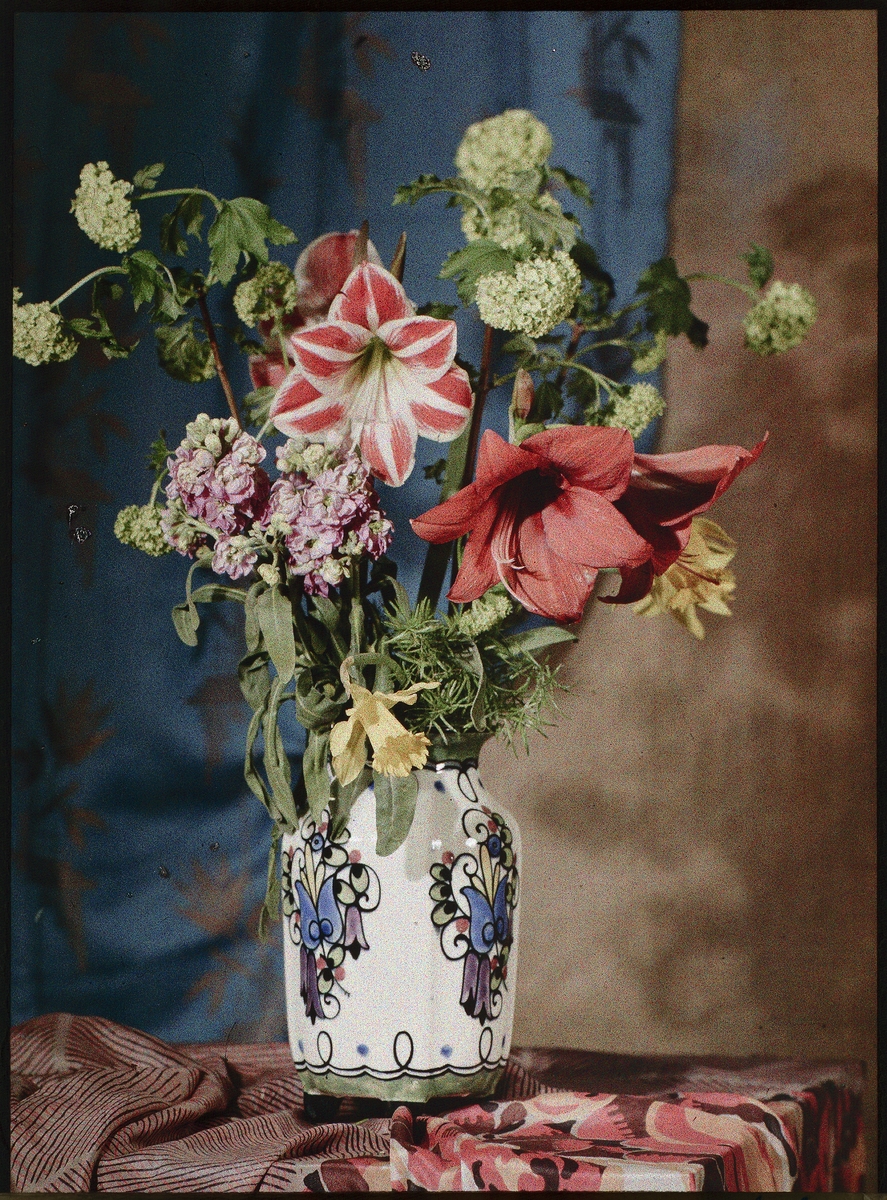
Bäckström, Helmer
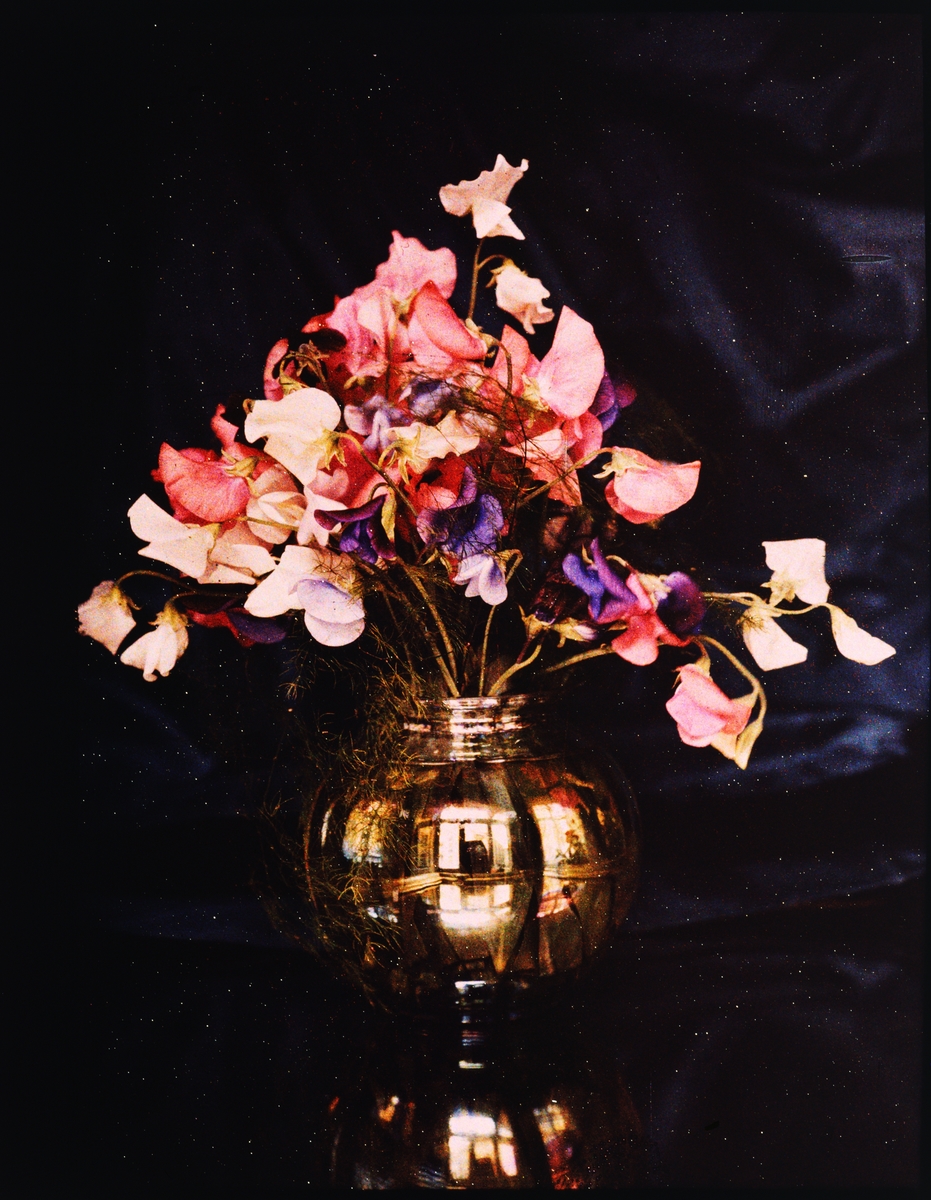
Jäderström, John
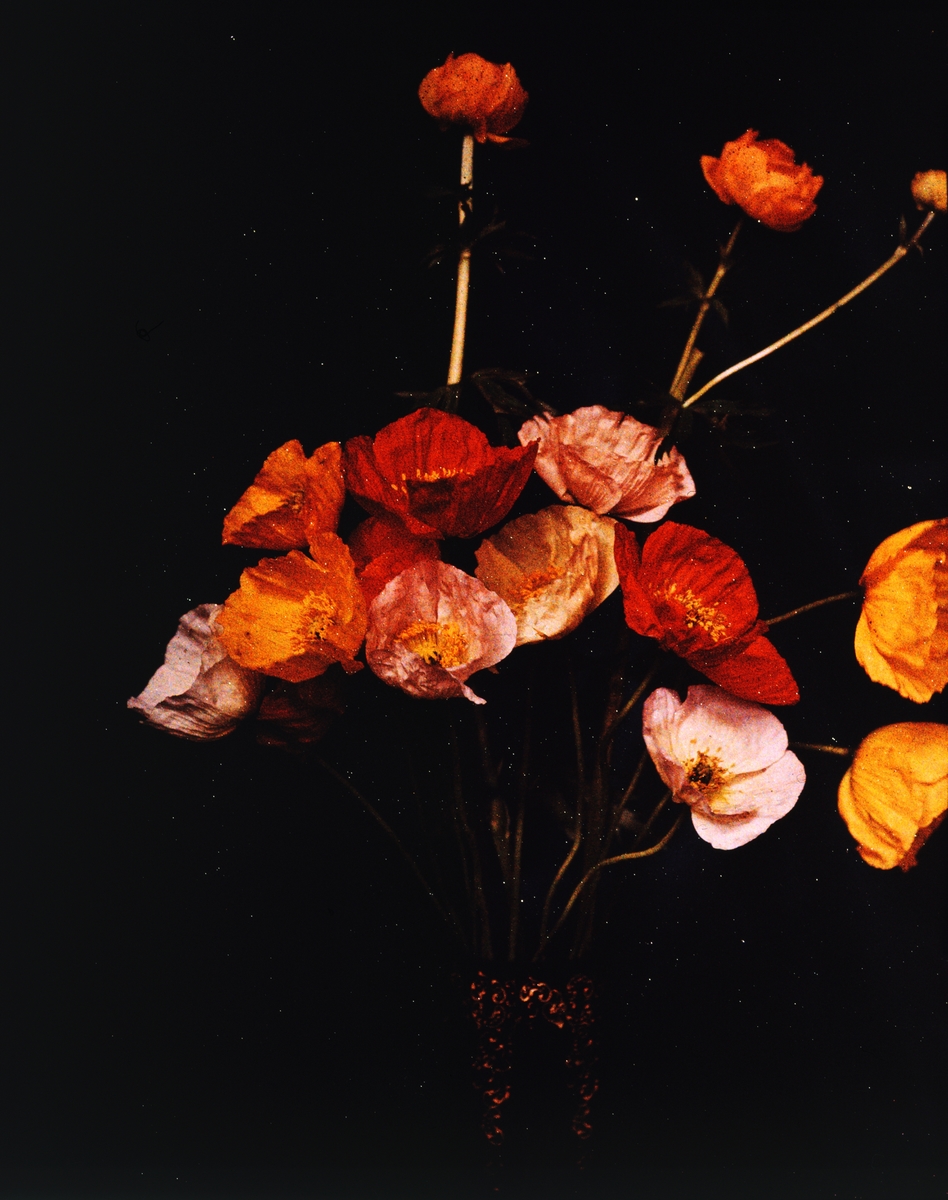
Jäderström, John
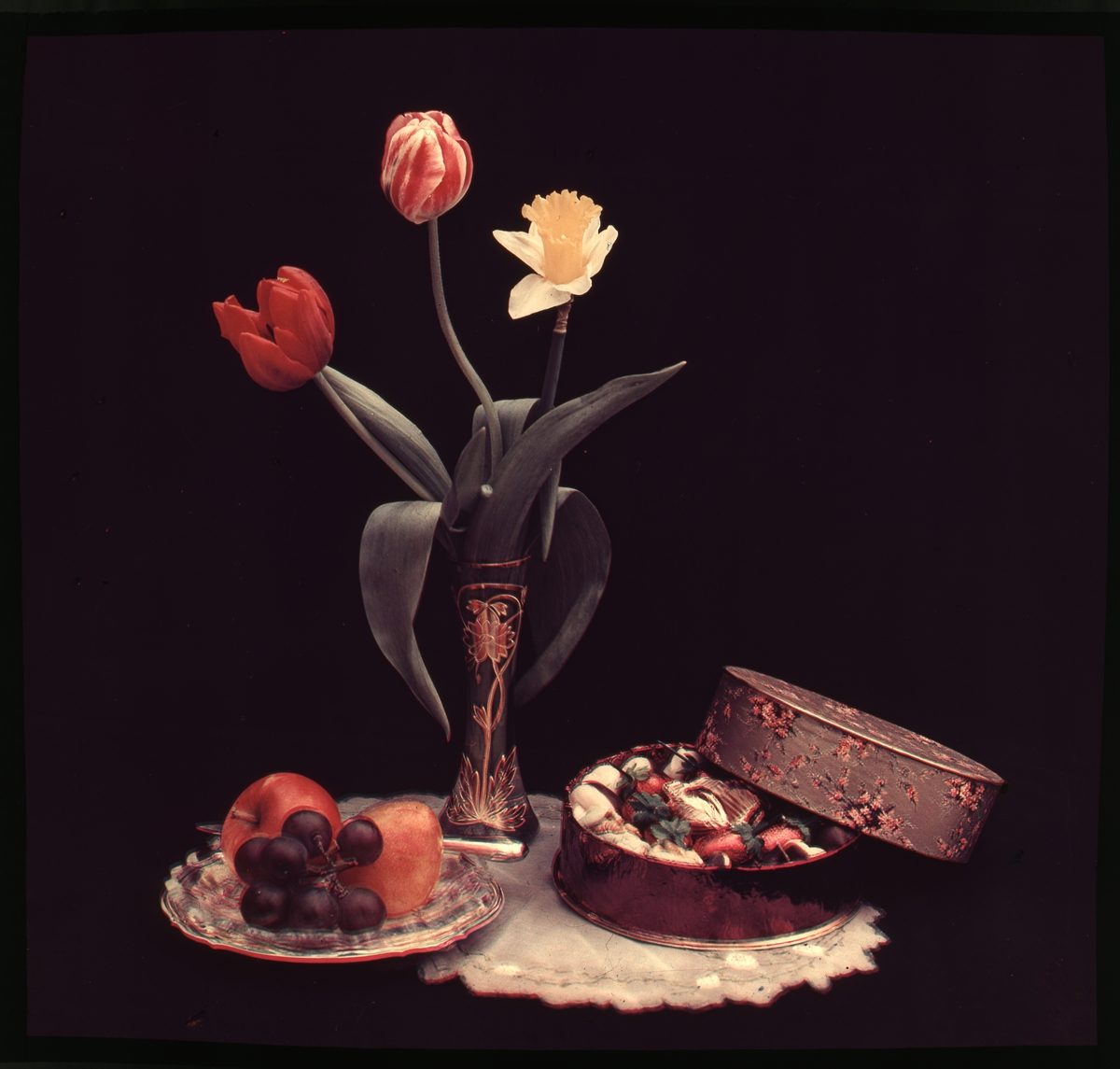
Hertzberg, John
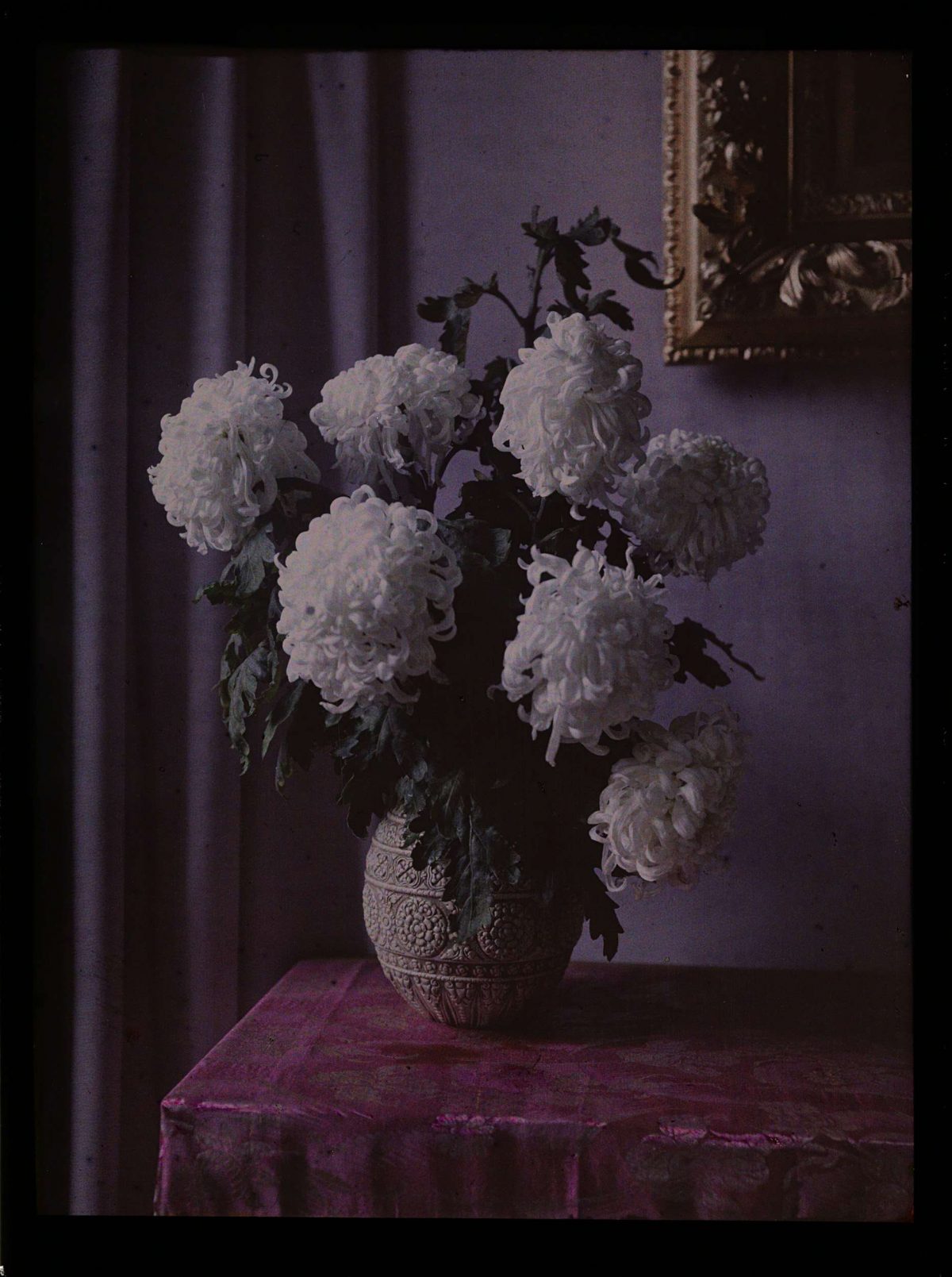
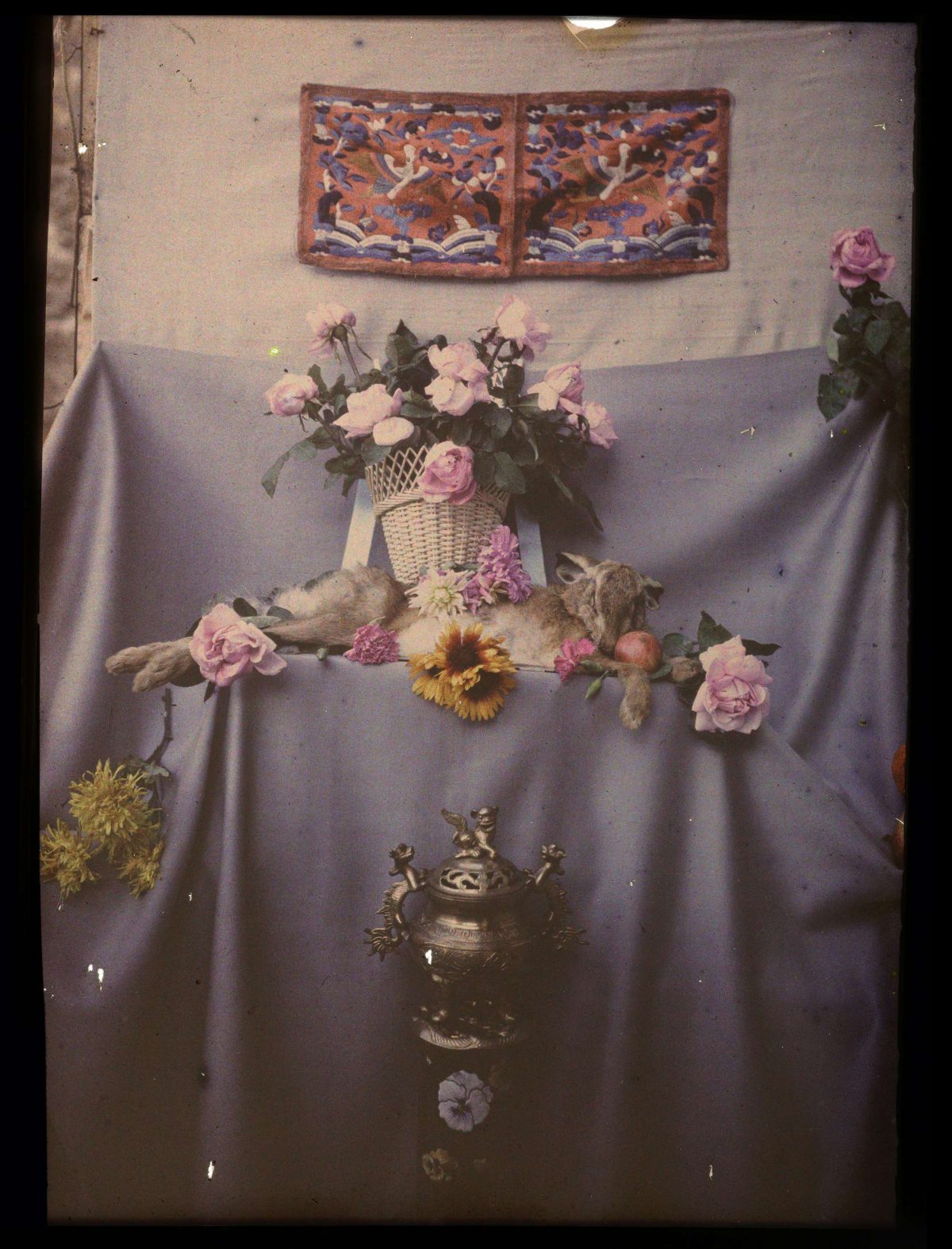
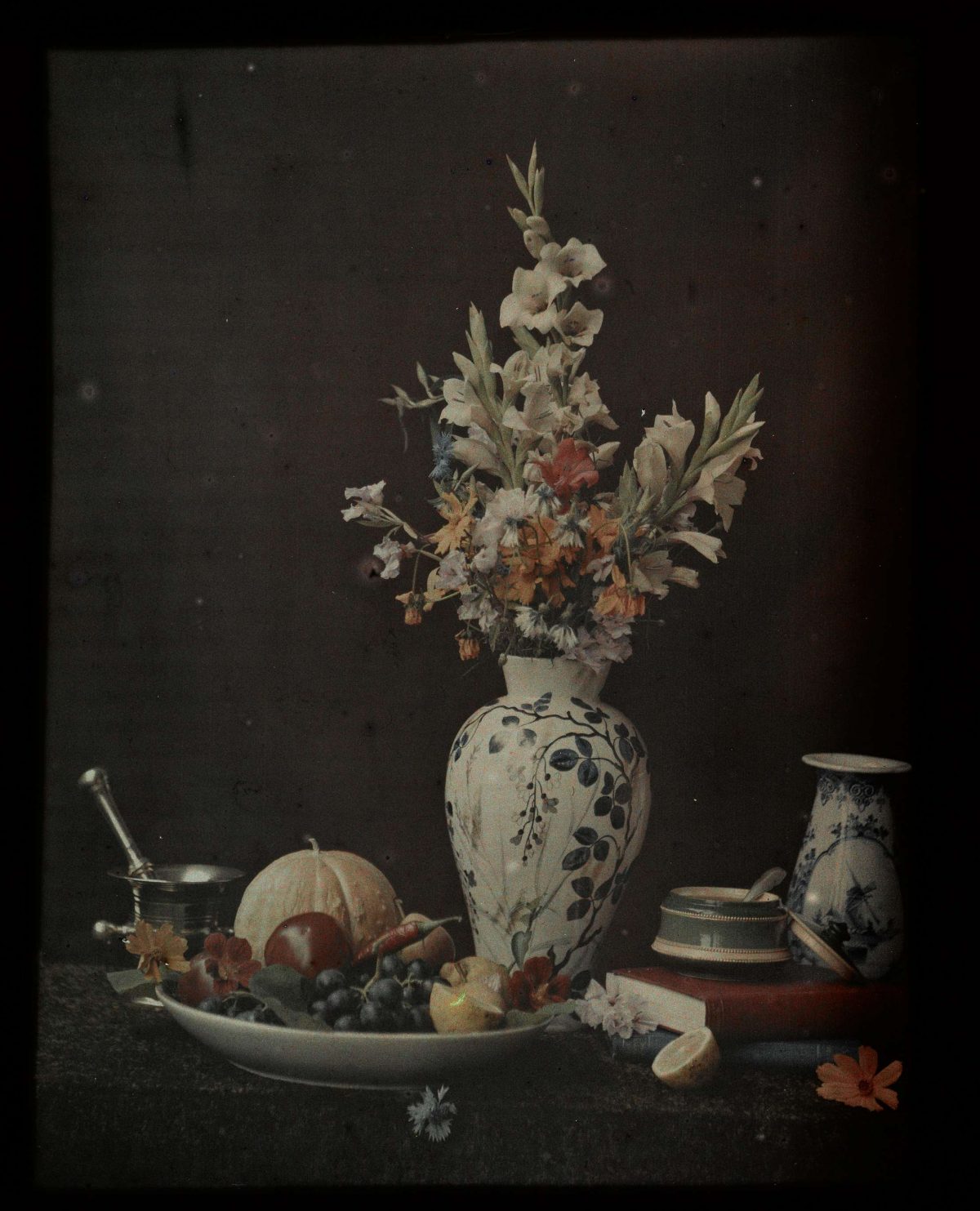
Bäckström, Helmer
Autochrome flowers via Europeana
Would you like to support Flashbak?
Please consider making a donation to our site. We don't want to rely on ads to bring you the best of visual culture. You can also support us by signing up to our Mailing List. And you can also follow us on Facebook, Instagram and Twitter. For great art and culture delivered to your door, visit our shop.

